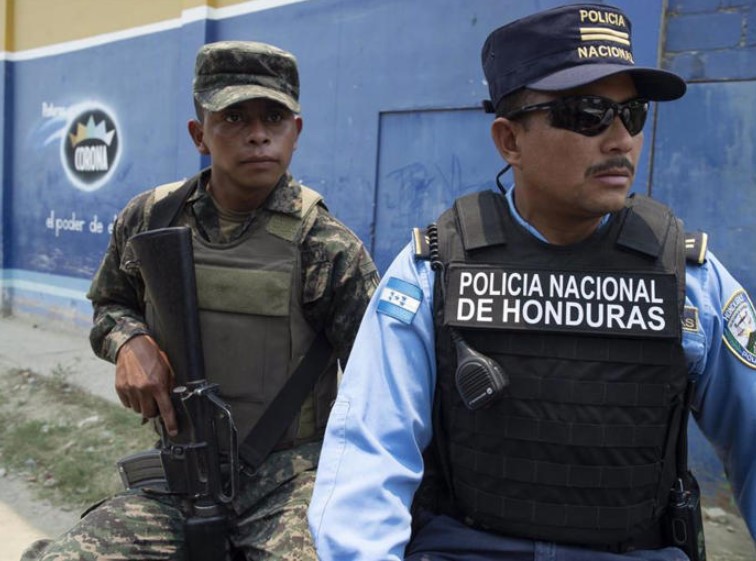Honduras initiates 30-day state of emergency to fight gangs

The Honduran government has decreed a state of emergency that will last for at least the next 30 days, in an attempt to contain high crime rates, especially in the cities of Tegucigalpa and San Pedro Sula.
Authorities have put the spotlight on some of the most troubled neighborhoods in the two main Honduran cities, where gangs have been stepping up their criminal activities, such as robberies and extortion.
“We must be implacable against organized crime,” said the director of the Honduran National Police, Gustavo Sanchez, during the launch of a special operation that began with an impromptu ceremony in a neighborhood in southern Tegucigalpa.
Hundreds of police have since been carrying out searches and arrests in some of these areas controlled by the Mara-18 and Mara Salvatrucha gangs, the main targets of this operation, according to Sanchez, who asked the agents to fully respect human rights.
Despite the measure, the authorities have explained that it will only affect those who are members of these types of organizations, so the rest of the citizens have full freedom of movement to carry out their normal activities, although they may be detained by the agents until their identities are verified.
Of the almost 300 municipalities in the country, only two, those of Tegucigalpa and San Pedro Sula, are under this measure. In the capital, 89 neighborhoods are being intervened, while in the second city there are 73, reports the Honduran newspaper ‘La Prensa’.
On Thursday last week, the president of Honduras, Xiomara Castro, announced the implementation of a state of emergency that would last at least until January 6 due to the “national emergency” faced by the country because of the increase in crime.
The decree approved by Castro stated that “by virtue of the serious disturbance of peace and security” in the country’s main cities caused by criminal groups, it had been decided to “suspend the guarantees established in the Constitution” and empower the Police to arrest those they consider responsible “for associating, executing, or having links” with crimes and offenses.
The measure is reminiscent of a similar one announced by one of its also troubled neighbors, El Salvador, where its president, Nayib Bukele, has had a state of emergency for more than seven months now, amidst criticism and denunciations of human rights violations by international organizations.







